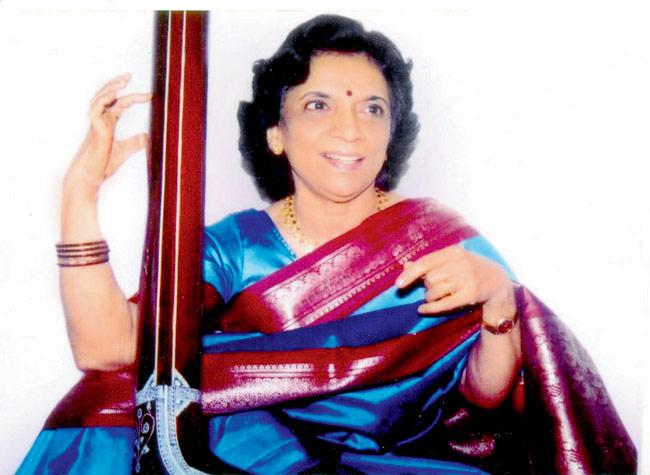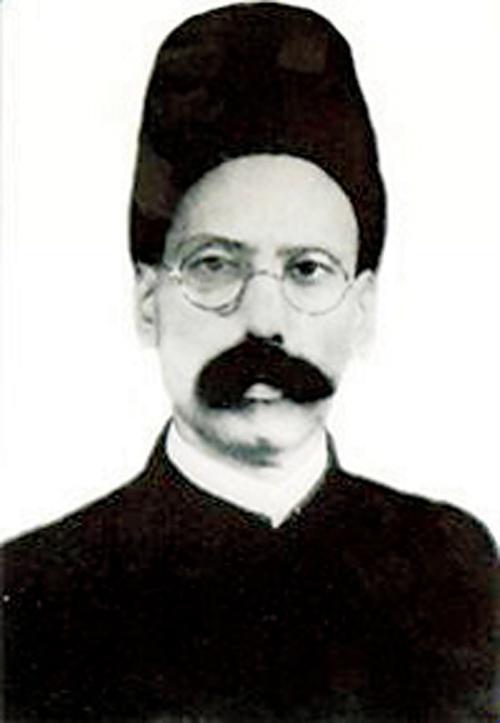Sign up for a lecture-demonstration that sheds light on the only musical gharana to have its origins in Mumbai


ADVERTISEMENT
One may find it hard to imagine that in the crammed lanes of Mumbai's buzzing Bhendi Bazaar, where the din of traffic and hawkers selling their wares drowns out every other noise, there once flowed melodies of rich Indian Classical music. In fact, so crucial was the neighbourhood to the development of a particular musical tradition that its name came to be forever associated with it.

Dr Suhasini Koratkar
The Bhendibazaar Gharana, the only musical gharana to have taken its roots in Mumbai, is over 125 years old. But unfortunately, despite its distinct style of singing and nuances that drew the likes of Lata Mangeshkar and the late Manna Dey to it, it never became as well known as the Kirana or Agra gharanas. When the Bhendibazaar Gharana was at the brink of getting lost in the annals of history, its senior exponents like Dr Suhasini Koratkar and connoisseurs like Sudhir Vishwanath Gadre took the onus of preserving the tradition for future generations. At a lecture-demonstration this evening, Dr Koratkar, the fifth-generation practitioner of the gharana, will highlight its salient features, style of presentation and compositions. The Pune-based artiste will be joined by Kishori Janorikar, Santosh Deshmukh and Namdeo Rajguru.
A gharana for Bombay
The lineage of the tradition dates back to 1870 when three brothers and accomplished musicians, Ustad Chhajjoo Khan, Ustad Nazeer Khan and Ustad Khadim Hussain Khan, arrived in Bombay from Bijnaur in Uttar Pradesh. They joined their brother Vilayat Hussain, who used to stay in Bhendi Bazaar. The name is a local adaptation of what the British used to call 'Behind the bazaar', referring to the locality beyond Fort. Having been trained in music from various gharanas, the trio developed their distinct style. They gained reputation as singers from Bhendi Bazaar, and by 1890, their tradition came to be known as the Bhendibazaar Gharana.

Ustad Aman Ali Khan. Pic courtesy/Swaramandakini.com
"The gharana remained popular until the first half of the 20th century, after which it started fading away from the Classical music scene," says Dr Koratkar, who believes that it was impacted by the early passing away of many of its stalwarts, including Ustad Aman Ali Khan, one of the greatest exponents of the tradition. Its practitioners also usually remained aloof from public concerts, something Dr Koratkar tried to change as the station director for All India Radio, where she documented the heritage of this gharana extensively.
Unique renditions
The musical training of the three founder-brothers lent a unique style to the Bhendibazaar Gharana, which drew eminent playback singers to it. A languorous pace of rendition, open-throated voice, tremendous breath control and use of bewitching inflections as well as Carnatic ragas are some of the qualities that set the gharana apart.
"Much importance is given to bandish here. This is one gharana where the expression is critical," shares Dr Koratkar, who has herself created many compositions. "The Bhendibazaar gaayki shows that Classical music needn't be dry, and therein lies its beauty."
 Subscribe today by clicking the link and stay updated with the latest news!" Click here!
Subscribe today by clicking the link and stay updated with the latest news!" Click here!







